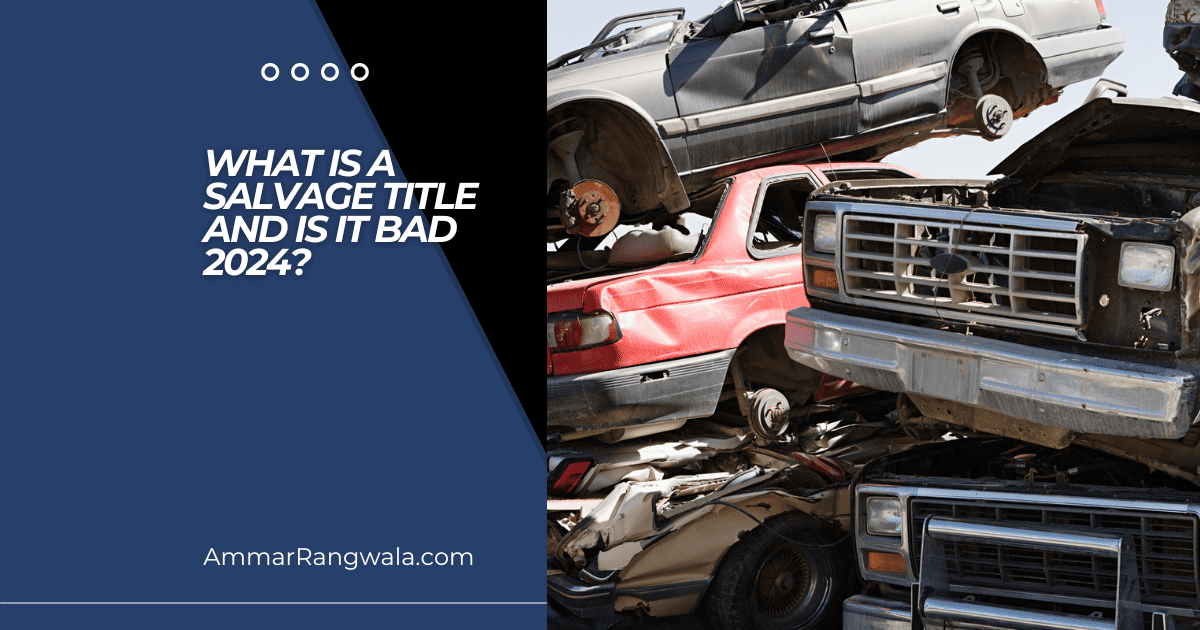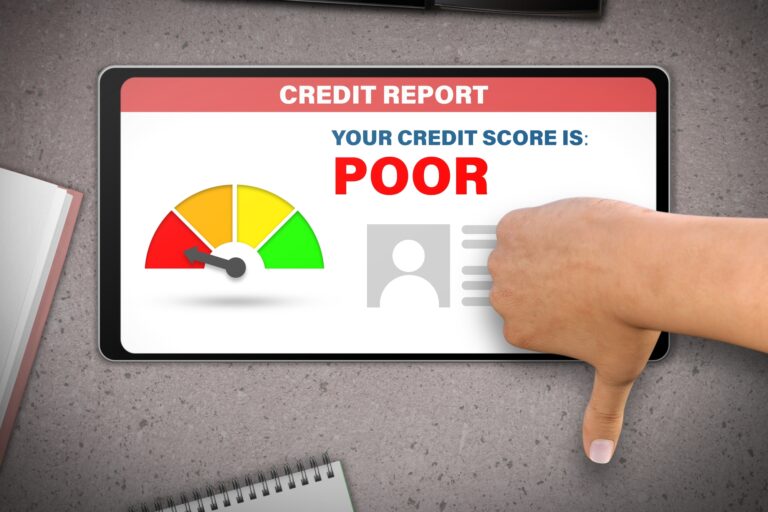What Is a Salvage Title and Is It Bad 2024?

A salvage title car carries a unique story, often marked by significant damage deemed beyond repair (total loss) by car insurance companies. While these vehicles can offer potential savings to savvy buyers, understanding the implications is crucial before deciding. This guide dives into salvage titles, clarifying what they mean, the potential risks and benefits involved, and how to navigate this landscape responsibly. So, let’s explore the salvage title terrain.
Understanding Salvage Titles
Buying a car with a salvage title can be tempting due to the potential for significant savings. However, it’s crucial to understand the complexities involved.
Demystifying the Labels
Salvage titles come in various flavors, each carrying unique baggage:
- Flood Damage: Waterlogged vehicles often harbor hidden rust, electrical issues, and mold growth, presenting long-term risks.
- Major Collision: Structural integrity is paramount after serious accidents—extensive repairs mask underlying problems, impacting safety and drivability.
- Theft Recovery: Recovered stolen vehicles may have significant damage, tampering, or missing parts, raising red flags about quality and legality.
Navigating the State Maze
Laws surrounding salvage titles differ across states. Some require extensive repairs and safety inspections before titling the vehicle “rebuilt,” while others allow them on the road with limitations. Always research your state’s specific regulations to avoid legal headaches.
Before You Make the Leap
A vehicle history report is your first line of defense. Scrutinize its details to understand the damage history, title classification, and repair documentation. Feel free to involve a qualified mechanic for a thorough inspection to uncover hidden problems and assess potential repair costs.
Salvage titles can be risky bets. While potential savings exist, hidden issues and legal hurdles can turn them into expensive headaches. Approach them cautiously, conduct thorough research, and prioritize professional assessments before deciding.
Advantages of Salvage Title Vehicles
Salvage title vehicles often have a hefty discount compared to their clean-titled counterparts. This cost savings can be incredibly tempting, but it’s crucial to understand the potential advantages and drawbacks before making a decision.
Cost Advantage
The significant price difference is the primary benefit of buying a salvage title vehicle. These vehicles can be 20-40% cheaper than their clean-titled equivalents, presenting a substantial financial advantage if you’re on a tight budget.
DIY Opportunity
A salvage title vehicle can be a project waiting to happen for individuals with mechanical skills and the necessary tools. Repairing and restoring the car allows you to customize it to your preferences and increase its value.
Unique Access
Occasionally, rare or discontinued models might only be available with salvage titles due to minor accidents or hail damage. If you’re passionate about owning a specific car, a salvage title could be your chance to acquire it at a more affordable price.
Important Considerations
Remember, there are significant downsides to consider alongside the potential benefits:
- Unknown Damage: The extent of the damage leading to the salvage title may be unclear, leading to hidden repair costs and safety concerns.
- Resale Difficulty: Selling a salvage title vehicle can be challenging due to potential buyer apprehension and lower market value.
- Insurance Obstacles: Obtaining auto insurance for a salvage title vehicle can be difficult and often comes with higher premiums.
Weighing the Options
Buying a salvage title vehicle requires careful evaluation of your budget, mechanical skills, and risk tolerance. Thoroughly research the vehicle’s history, obtain professional inspections, and understand the potential risks.
Disadvantages of Salvage Title Vehicles
Insurance hurdles: Securing insurance for a salvage title vehicle can be challenging, and even when possible, premiums might be significantly higher than for cars with clean titles. Some companies may outright refuse coverage, leaving you exposed financially.
Repair quagmire: Restoring a salvage vehicle to roadworthy condition often involves complex repairs and potential hidden issues. The repair history may only disclose some things, so unexpected problems could arise, leading to increased costs and frustration.
Resale roadblock: Selling a salvage title vehicle is notoriously tricky. The diminished value makes finding buyers challenging, and you’ll likely face steep losses compared to similar clean title vehicles.
Hidden dangers: Even after repairs, hidden damage or underlying issues from the original accident may remain undetected. These could pose safety risks or lead to expensive future repairs, negating initial cost savings.
Weighing the Risks
The potential downsides of salvage title vehicles are substantial. While the lower price might be alluring, remember, it often comes at the expense of peace of mind, financial security, and safety. Carefully weigh the risks and consider thoroughly if such a vehicle aligns with your budget, needs, and risk tolerance.
Buying a Salvage Title Vehicle
Essential Research
- Vehicle History Report: Obtain a comprehensive report from a reputable source like Carfax or AutoCheck. This reveals the accident details, repairs performed, and potential flood or hail damage.
- Professional Inspection: Don’t rely solely on visual cues. Have the vehicle inspected by a qualified mechanic specializing in accident repairs. They’ll assess the extent of damage and quality of repairs and identify any hidden issues.
- Title Verification: Confirm the salvage title legitimacy with the Department of Motor Vehicles (DMV). Ensure title branding accurately reflects the repairs and that the car meets your state’s registration requirements.
Negotiation and Cost Awareness
- Realistic Pricing: Understand the car’s actual value considering its condition, repair history, and market comparables. Don’t expect a pristine car at a rock-bottom price.
- Negotiate Firmly: Factor in potential repair costs when negotiating the purchase price. Remember, unforeseen issues can quickly drain your savings.
- Repair Cost Estimates: Obtain quotes from multiple repair shops to understand the potential financial burden of addressing any identified issues. Be prepared for unexpected costs.
Beyond the Checklist
- Exercise Caution: If the seller hesitates to provide complete information or discourages inspections, walk away. Transparency is key.
- Consider Alternatives: Weigh the risks and potential costs against the benefits of a salvage title vehicle. A used car with a clean title might be a wiser choice for some.
- Seek Expert Advice: Consult a trusted mechanic or financial advisor before deciding. Their insights can help you understand the complexities and avoid costly mistakes.
Selling a Salvage Title Vehicle
Selling a salvage title vehicle requires extra effort and transparency compared to traditional car sales. Understanding legalities, showcasing value, and choosing the right platform are crucial for a smooth title transfer.
Know Your Legal Obligations
- Disclosure is Key: Failing to disclose a salvage title is illegal in most states. Clearly state the title status in all advertisements and upfront with potential buyers. Be prepared to present the salvage certificate.
- Stay Informed: Research your state’s specific disclosure laws and regulations related to salvage titles. Penalties for non-compliance can be severe.
Attract Buyers with Clarity and Transparency
- Be Meticulous: Provide a detailed description highlighting the vehicle’s condition, including all repairs completed and parts replaced. Attach high-quality photos showcasing both the interior and exterior.
- Document Everything: Gather and present all repair invoices, receipts, and mechanic reports to demonstrate the repairs’ quality and legitimacy.
- Set Expectations: Be realistic about the vehicle’s value, considering its salvage title. Competitive pricing based on market research will attract serious buyers.
Finding the Right Marketplace
- Online Platforms: Several online marketplaces cater specifically to salvage vehicles, such as Copart and CarsDirect. These platforms attract buyers familiar with salvage titles.
- General Listing Websites: While listing on platforms like Craigslist or Facebook Marketplace is possible, clearly emphasize the salvage title in your listing to avoid misleading potential buyers.
- Specialized Buyers: Consider contacting junkyards or auto recyclers who deal with salvage vehicles directly. They may offer a quick and hassle-free solution but potentially cheaper.
Summary
Salvage title vehicles offer potential savings but come with significant risks. They require careful research, professional inspections, and informed decision-making before committing.
Key Takeaways
- Salvage titles indicate severe past damage, potentially impacting safety and resale value.
- Consider hidden damage, potential repair costs, and insurance challenges before buying.
- Thorough inspections by qualified mechanics are crucial to assess the vehicle’s condition and safety.
- Compare insurance options and understand limitations in coverage for salvage titles.
Seek Professional Guidance
Consulting with experienced mechanics and insurance agents is essential before buying or selling a salvage title vehicle. Their expertise can help you:
- Evaluate the extent of past damage and potential repair costs.
- Identify any safety concerns or structural issues.
- Navigate insurance requirements and limitations for salvage titles.
- Understand legal implications and documentation complexities.
Take Control of Your Decision
Consider the challenges associated with salvage titles. While they may offer a lower price point, potential pitfalls can outweigh the perceived benefit. Choose wisely, prioritize safety, and seek professional guidance throughout the process.
Ammar has started several online businesses and is a blogger who loves providing quality content to help others. He is involved with affiliate marketing, domain names, NFTs, and cryptocurrencies. Check out my blog if you want to learn more about these areas and business in general.






